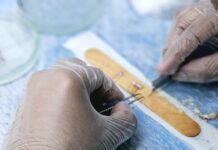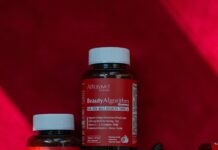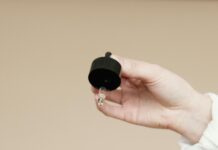Are you wondering what to eat and avoid after a transplant for the best possible recovery? The post-transplant diet plays a crucial role in supporting your body’s healing process and preventing complications. Many people ask, “What foods boost immune system after transplant?” or “Which foods should be avoided post-transplant?” Understanding the right nutrition can dramatically improve your overall health and transplant success. In this guide, we will explore powerful post-transplant nutrition tips, including the best foods to eat for optimal healing and the harmful foods that can slow down recovery. Did you know that certain foods can interfere with your medications or increase your risk of infection? That’s why knowing the best diet after organ transplant is more important than ever. Whether you’re looking for immune-boosting foods after transplant or searching for a detailed list of foods to avoid after transplant surgery, this article covers it all. Stay tuned to discover expert advice and trending insights on how to fuel your body right after a transplant, so you can regain strength faster and live healthier. Don’t miss out on these essential tips to transform your post-transplant diet today!
Top 7 Nutrient-Rich Foods to Boost Recovery After Organ Transplant
Recovering from an organ transplant is a journey that demands more than just medical care; it requires a well-balanced diet rich in nutrients to help the body heal and prevent complications. Many people don’t realize how much the food we eat can influence post-transplant recovery. Eating right after an organ transplant, especially in places like New York where lifestyles are hectic, can be challenging but vital. This article tackles the “Top 7 Nutrient-Rich Foods to Boost Recovery After Organ Transplant” and also dives into what to eat and avoid for optimal healing.
Why Post-Transplant Diet Matters?
After someone receives an organ transplant, their immune system is often suppressed with medications to prevent rejection. This suppression makes them more vulnerable to infections and other complications. Nutritional support becomes a cornerstone of recovery, helping to rebuild tissues, support immune function, and maintain overall health. Historically, transplant patients were given very restrictive diets, but with advances in nutrition science, the post-transplant diet now focuses on balance and nutrient density.
Eating the wrong foods can slow down healing or increase the risk for infections, while a good diet, rich in vitamins and minerals, ensures the body gets the tools it needs to repair and thrive.
Top 7 Nutrient-Rich Foods to Boost Recovery After Organ Transplant
Leafy Greens
Spinach, kale, and Swiss chard are packed with vitamins A, C, and K, plus iron and folate. These nutrients support immune function and tissue repair. For example, Vitamin C helps collagen formation, essential for wound healing.Fatty Fish
Salmon, mackerel, and sardines provide omega-3 fatty acids, which reduce inflammation and promote heart health. After an organ transplant, controlling inflammation is vital because chronic inflammation can harm the new organ.Legumes and Beans
Rich in protein and fiber, beans like lentils, chickpeas, and black beans aid in muscle repair and maintaining gut health. Protein is fundamental for tissue regeneration, but too much red meat should be avoided post-transplant due to its fat content.Berries
Blueberries, strawberries, and raspberries are antioxidant powerhouses. Antioxidants neutralize free radicals, which can damage cells and impede healing. Berries also provide vitamin C and fiber, supporting immune defenses.Nuts and Seeds
Almonds, walnuts, flaxseeds, and chia seeds contain healthy fats, vitamin E, and zinc. Zinc is important for immune function and wound healing. However, intake should be moderate since nuts are calorie-dense.Whole Grains
Brown rice, quinoa, and oats supply complex carbohydrates for energy and fiber to aid digestion. Digestive health can sometimes be compromised after transplant due to medications, so fiber helps maintain regularity and gut flora balance.Lean Poultry
Chicken and turkey offer lean protein with less saturated fat compared to red meat. Protein supports the immune system and repairs muscle mass lost during hospital stays.
Post-Transplant Diet: What to Eat & Avoid for Optimal Healing
Foods to Eat
- Fresh fruits and vegetables: Packed with vitamins, minerals, and fiber.
- Lean proteins: Chicken, turkey, fish, tofu, and legumes.
- Healthy fats: Olive oil, avocado, nuts, and seeds.
- Whole grains: Brown rice, barley, whole wheat bread, and oats.
- Low-fat dairy: Milk, yogurt, and cheese for calcium and vitamin D.
- Hydration: Plenty of water to flush toxins and support kidney function.
Foods to Avoid
- Raw or undercooked foods: Such as sushi or raw eggs, which can harbor harmful bacteria.
- Unpasteurized dairy: Risky due to possible contamination.
- High-sodium foods: Like processed snacks and canned soups, which can increase blood pressure.
- Sugary drinks and sweets: Can lead to weight gain and blood sugar spikes.
- Excess alcohol: Impairs liver function and interacts with immunosuppressive drugs.
- High-fat red meats: Increase cholesterol and inflammation risk.
Comparing Nutrients Needed Before and After Transplant
| Nutrient | Pre-Transplant Focus | Post-Transplant Focus |
|---|---|---|
| Protein | Moderate intake | Increased for tissue repair |
| Sodium | Normal to low intake | Strictly limited |
| Fat | Balanced | Emphasis on healthy fats |
| Fiber | Normal intake | Increased for gut health |
| Vitamins (A, C, D, E) | Regular from diet or supplements | High intake to support immunity and healing |
| Fluids | Regular | High intake to support kidneys |
Practical Tips for Post-Transplant Patients in New York
- **
What Foods Should You Avoid After a Transplant? Essential Diet Tips for Healing
Experiencing a hair transplant is a big step for many people who want to restore their confidence and improve their appearance. But after the procedure, what you eat becomes just as important as the surgery itself. Your diet can either help your scalp heal faster or slow down the recovery process. So, knowing what foods you should avoid after a transplant is crucial. Many folks overlook this part, but in reality, your post-transplant nutrition plays a major role on how well your hair follicles take root and grow.
Why Diet Matters So Much After Hair Transplant?
Hair transplantation, whether it is follicular unit extraction (FUE) or follicular unit transplantation (FUT), causes trauma to the scalp. The newly implanted follicles need a lot of nutrients to survive and flourish. If your body doesn’t get the right vitamins, minerals, and good proteins, healing can be delayed or infected. Also, some foods can cause inflammation, increase oil production, or affect blood flow, which all can negatively impact the hair growth process.
Historically, traditional medicines from different cultures have always emphasized healing diets after surgeries. For example, Ayurveda recommends avoiding spicy and oily foods after any skin procedure to reduce inflammation. Similarly, modern medicine advises watching out for sugar and processed foods after wounds or surgeries.
What Foods Should You Avoid After a Transplant?
Avoiding certain foods is essential to ensure your scalp heals without complications. Here is a list of common offenders that might seem harmless but could actually hinder your recovery:
Sugary Foods and Drinks
High sugar intake increases inflammation and can weaken your immune system. Sugary sodas, candies, and desserts should be limited for at least 2 weeks post-transplant.Fried and Oily Foods
These foods may boost sebum production on your scalp, making it greasy and prone to infections. French fries, fried chicken, and oily snacks are best avoided.Alcohol
Alcohol thins your blood and can lead to excessive bleeding or swelling around the transplant area. It also dehydrates your body, slowing down healing.Salty Foods
Excess salt causes water retention and swelling, which is not good for the delicate grafts. Processed meats and canned soups are high in salt content.Spicy Foods
Spicy meals might increase blood flow and inflammation, causing discomfort or irritation around the transplanted follicles.Caffeinated Beverages
Caffeine can dehydrate you and may affect blood circulation negatively. Too much coffee or energy drinks can interfere with healing.
Foods That Help Healing: What to Eat Post-Transplant
While avoiding the above, you should focus on including nourishing foods that support hair growth and tissue repair. Here’s a simple guide to what you should consume:
Protein-Rich Foods
Hair is mainly made of keratin, a protein, so eating lean meats, fish, eggs, and legumes provide the building blocks for new hair.Vitamin C-Rich Fruits
Fruits like oranges, strawberries, and kiwi boost collagen production and improve wound healing.Omega-3 Fatty Acids
Found in fatty fish (salmon, mackerel), flaxseeds, and walnuts, omega-3 helps reduce inflammation and supports scalp health.Vitamin A and Beta-Carotene
Carrots, sweet potatoes, and spinach help keep the scalp moisturized and prevent dryness.Zinc and Iron
These minerals are critical for cell regeneration. Red meat, pumpkin seeds, and lentils are good sources.Hydration
Drinking plenty of water flushes out toxins and keeps your skin and scalp hydrated. Aim for at least 8 glasses a day.
Comparison Table: Foods to Avoid vs. Foods to Eat After Hair Transplant
| Foods to Avoid | Reason | Foods to Eat | Benefit |
|---|---|---|---|
| Sugary sweets and sodas | Causes inflammation and slows healing | Lean proteins (chicken, fish) | Provides keratin for hair growth |
| Fried/oily foods | Increases scalp oiliness and infection risk | Vitamin C fruits (oranges, kiwi) | Enhances collagen production |
| Alcohol | Thins blood, causes dehydration | Omega-3 rich foods (salmon, walnuts) | Reduces inflammation and nourishes scalp |
| Salty processed foods | Causes swelling and water retention | Leafy greens (spinach, kale) | Supplies iron and vitamins |
| Spicy foods | Increases blood flow and irritation | Hydrating fluids (water, herbal teas) | Keeps scalp moist and flushes toxins |
| Excess caffeine | Dehydrates and affects circulation | Nuts and seeds | Provides zinc and healthy fats |
Practical Tips for Your Post-Transplant Diet
1
How to Create a Balanced Post-Transplant Meal Plan for Faster Healing
Hair transplant surgery is a popular solution for many facing hair loss, especially here in New York where people constantly want to look their best. But what often gets overlooked is the role of nutrition after the procedure. How you eat can significantly affect the speed of your recovery and the overall success of the transplant. If you don’t pay attention to your post-transplant diet, you might slow down healing or even risk damaging the transplanted follicles. So, how to create a balanced post-transplant meal plan for faster healing? Let’s explore the essentials and also dive into what to eat and what to avoid.
Why Diet Matters After Hair Transplant?
When hair follicles are transplanted, your scalp needs to heal quickly to support new hair growth. This healing process requires nutrients that help tissue repair, reduce inflammation, and fight infection. Historically, humans have relied on nutrient-dense foods to heal wounds and recover from surgeries long before modern medicine came around. Vitamins, minerals, proteins, and antioxidants play critical roles in this.
Without adequate nutrition, your body will struggle to repair the microscopic damage caused by the transplant. This can lead to problems like prolonged redness, scabbing, or even follicle death. Therefore, your diet is not just about avoiding junk food—it’s about actively feeding your body the nutrients that accelerate healing.
Key Nutrients For Post-Transplant Healing
To speed up recovery and promote healthy hair growth, focus on these nutrients:
- Protein: Hair is mostly made of keratin, a type of protein. Eating enough protein supports follicle repair and new hair growth. Sources include chicken, fish, eggs, beans, and nuts.
- Vitamin C: Essential for collagen production, which helps skin heal. Found in citrus fruits, strawberries, bell peppers, and broccoli.
- Iron: Low iron slows healing and can cause fatigue. Red meat, spinach, lentils, and fortified cereals are good sources.
- Zinc: Plays a role in tissue repair and immune function. You can get zinc from meat, shellfish, seeds, and whole grains.
- Omega-3 Fatty Acids: Reduce inflammation and promote scalp health. Found in fatty fish like salmon, walnuts, and flaxseeds.
- Vitamin E: Acts as an antioxidant protecting cells during healing. Nuts, seeds, and green leafy vegetables are rich in vitamin E.
What to Eat: A Sample Balanced Meal Plan
Here’s a simple, practical outline for a day’s meal that supports post-transplant recovery:
Breakfast
- Scrambled eggs with spinach and tomatoes
- Whole grain toast with avocado spread
- Orange juice or a bowl of mixed berries
Lunch
- Grilled salmon salad with mixed greens, walnuts, and bell peppers
- Quinoa or brown rice on the side
- A small bowl of Greek yogurt with honey
Snack
- Handful of almonds or pumpkin seeds
- An apple or banana
Dinner
- Roasted chicken breast with steamed broccoli and sweet potatoes
- Lentil soup or a side of chickpeas
- Green tea or herbal tea
This plan includes a balance of proteins, healthy fats, and antioxidants necessary for healing. Plus, it’s easy to find these ingredients in New York markets.
Foods to Avoid After Hair Transplant
Certain foods or drinks can hinder recovery or cause unwanted side effects. It’s best to steer clear of these during the first few weeks:
- Processed and fried foods: High in unhealthy fats and salt, these can increase inflammation and slow healing.
- Sugary snacks and drinks: Excess sugar impairs immune function and can lead to poor wound healing.
- Alcohol: It thins the blood, increasing bleeding risk and dehydration, which is bad for healing tissue.
- Caffeine (in excess): While a cup of coffee is okay, too much caffeine can dehydrate and possibly affect nutrient absorption.
- Spicy foods: Might irritate the scalp or cause sweating, which can interfere with healing wounds.
Comparing Post-Transplant Diets: Traditional vs Modern Recommendations
| Aspect | Traditional Diets | Modern Recommendations |
|---|---|---|
| Protein Sources | Mostly animal-based (meat, fish) | Mix of animal and plant proteins |
| Fat Intake | Higher saturated fats (butter, lard) | Focus on omega-3s and healthy fats |
| Vitamin Intake | Less emphasis on supplementation | Emphasis on vitamin C, E, and zinc |
| Hydration | Water and herbal teas | Same, with avoidance of alcohol |
| Processed Foods | Limited availability, less consumed | Avoid processed and fried foods |
Both traditional and modern diets agree on the importance of nutrient-rich foods, but modern plans tend to emphasize balanced variety and reducing inflammation.
Practical Tips for Sticking to Your Post-Transplant Diet
- Plan your shopping list ahead with
Immune-Boosting Superfoods Perfect for Your Post-Transplant Diet
Getting a hair transplant is a big step for many people, especially in a busy city like New York where appearance matters to a lot of folks. But what many doesn’t realize is that the success of your hair transplant is not only about the surgery itself but also about what you eat after it. Your diet post-transplant plays a huge role in how well your scalp heal and your hair follicles grow. Eating right can boost your immune system and give your body the nutrients it need to recover fast. So, let’s dive into immune-boosting superfoods perfect for your post-transplant diet, and also discuss what to eat and avoid for optimal healing.
Why Post-Transplant Diet Matters?
When you have a hair transplant, your scalp goes through trauma, and your body starts a healing process. This involves inflammation, tissue repair, and hair follicle regeneration. Your immune system must work hard to protect the area from infection and support new hair growth. Eating certain foods can either help or hinder this process.
In history, people have always relied on diet to heal wounds; traditional medicine often emphasizes foods rich in vitamins and antioxidants. Similarly, after a hair transplant, fueling your body with the right nutrients can shorten recovery time and improve results.
Immune-Boosting Superfoods for Post-Transplant Recovery
Here’s a list of superfoods that are excellent for boosting immunity and supporting your healing process after a hair transplant:
- Citrus Fruits (Oranges, Lemons, Grapefruits): Loaded with Vitamin C, essential for collagen production, which helps in tissue repair.
- Spinach and Kale: These leafy greens are packed with Vitamin A, Vitamin C, iron, and folate, all important for cell growth and immune function.
- Nuts and Seeds (Almonds, Walnuts, Chia Seeds): Rich in Vitamin E and omega-3 fatty acids, which fight inflammation and promote scalp health.
- Turmeric: Contains curcumin, a powerful anti-inflammatory compound that can reduce swelling and support healing.
- Garlic: Known for its antimicrobial properties, garlic can help reduce the risk of infections at the transplant site.
- Berries (Blueberries, Strawberries, Raspberries): These berries have antioxidants that protect cells from damage and speed up recovery.
- Yogurt and Kefir: Probiotics in these foods support gut health, which is closely linked to immunity.
- Sweet Potatoes: High in beta-carotene, a precursor to Vitamin A, which helps maintain skin and hair health.
Post-Transplant Diet: What to Eat & Why
Focusing on certain nutrients after your transplant can improve the speed and quality of your healing:
Protein
Hair is mostly made of keratin, a type of protein. Eating enough protein helps regenerate hair follicles and tissue. Good sources include lean meats, eggs, beans, and tofu.Vitamins and Minerals
- Vitamin C (citrus fruits, bell peppers) to help collagen synthesis.
- Zinc (pumpkin seeds, lentils) which is vital for tissue repair and immune function.
- Iron (red meat, spinach) prevents anemia which can slow healing.
Healthy Fats
Omega-3 fatty acids reduce inflammation and improve blood flow to the scalp. These are found in fish like salmon and plant sources like flaxseeds.Hydration
Water helps flush out toxins and keeps your scalp hydrated, which is important for healthy hair growth.
Foods to Avoid After Hair Transplant
Not every food is your friend during recovery. Some can slow down healing or increase inflammation:
- Processed Foods: High in unhealthy fats and sugars, they can cause inflammation.
- Alcohol: It dehydrates your body and impairs immune function.
- Caffeine (in excess): Too much caffeine may restrict blood flow to the scalp.
- Salty Foods: Excess sodium can cause swelling and delay healing.
- Sugary Snacks and Drinks: These can disrupt immune response and increase inflammation.
Quick Comparison Table: Foods to Eat vs Foods to Avoid Post-Transplant
| Eat (Good for Healing) | Avoid (Harmful for Healing) |
|---|---|
| Fresh fruits (especially citrus) | Processed fast food |
| Leafy greens (spinach, kale) | Alcohol |
| Nuts and seeds (almonds, chia) | Excess caffeine |
| Lean proteins (chicken, eggs) | Salty snacks |
| Probiotic dairy (yogurt) | Sugary snacks and sodas |
| Turmeric and garlic | Fried foods |
| Sweet potatoes | Artificial sweeteners |
Practical Examples of Post-Transplant Meals
- Breakfast: Greek
Common Post-Transplant Diet Mistakes and How to Avoid Them for Optimal Health
Common Post-Transplant Diet Mistakes and How to Avoid Them for Optimal Health
Undergoing a hair transplant in New York can be an exciting step toward regaining confidence and improving appearance. But, many people don’t realize that what they eating after the procedure plays a huge role in how well their scalp heals and new hair grows. Post-transplant diet is not just about eating random healthy foods; it needs to be balanced, targeted, and avoiding certain things that might hinder recovery. Unfortunately, some common mistakes are made by patients trying to speed up healing but end up making it worse.
Why Post-Transplant Diet Matters So Much?
Hair transplantation is a delicate process where hair follicles are moved from one part of the scalp to another. After this, the body needs nutrients to repair tissue, reduce inflammation, and stimulate hair growth. Historically, traditional medicine in many cultures emphasized diet during recovery from skin or hair treatments. Ancient Ayurvedic practices, for example, recommended foods rich in antioxidants and proteins to foster healing. Modern science confirms this by showing that nutrients like vitamins A, C, D, E and minerals like zinc and iron are essential for hair follicle health.
Without proper nutrition, the transplanted follicles might not “take,” meaning they fail to grow new hair. Besides that, poor diet can increase swelling, infection risk, and slow down the healing process. So it’s not just what you eat but also what you avoid that counts.
Common Post-Transplant Diet Mistakes
Here are some frequent errors patients make after their hair transplant surgery:
Ignoring Protein Intake: Many forget that protein is the building block for hair. Without enough protein, the body can’t repair damaged follicles or create new hair shafts effectively.
Overconsuming Sugary or Processed Foods: Sweets and junk food cause inflammation in the body. Inflammation can worsen scalp swelling and slow down recovery.
Skipping Hydration: Water is often overlooked. Proper hydration helps blood circulation and nutrient delivery to the scalp.
Eating Excessive Salty Foods: Too much salt can lead to water retention and increased swelling around the transplant area.
Consuming Alcohol or Caffeine in Large Amounts: Both can cause dehydration and reduce blood flow to the scalp, negatively impacting healing.
Neglecting Vitamins and Minerals: Deficiency in vitamins like Vitamin D or minerals like zinc can delay hair growth and weaken follicles.
Post-Transplant Diet: What to Eat for Optimal Healing
To give your new hair the best chance, focus on a diet rich in the following:
Lean Proteins: Chicken, turkey, fish, eggs, tofu. These provide amino acids essential for hair keratin production.
Fruits and Vegetables: Especially those high in Vitamin C (oranges, strawberries, bell peppers) which help collagen formation and wound healing.
Healthy Fats: Avocados, nuts, seeds, olive oil. These fats support scalp skin health and reduce inflammation.
Whole Grains: Brown rice, quinoa, oats contain B vitamins which promote hair follicle strength.
Hydrating Fluids: Water, herbal teas, and broths help maintain moisture balance in the scalp.
Foods Rich in Zinc and Iron: Shellfish, spinach, lentils. These minerals are crucial for hair follicle function.
Foods and Drinks to Avoid After Hair Transplant Surgery
On the opposite side, some items should be limited or avoided for a few weeks post-surgery:
Fried and greasy foods that increase inflammation.
Sugary beverages and junk food that spike insulin levels and affect healing.
Excessive caffeine which constricts blood vessels.
Alcohol, known to thin blood and impair immune response.
Spicy foods that may cause irritation or increase body heat.
Practical Tips to Manage Your Post-Transplant Diet
Managing your diet might seem overwhelming but here are some easy ideas that work in real life:
Plan Your Meals Ahead: Preparing balanced meals before surgery can help avoid grabbing fast food out of convenience.
Keep Healthy Snacks Nearby: Nuts, fresh fruit, or yogurt make good quick options.
Drink Water Regularly: Set reminders if you tend to forget.
Consult a Nutritionist: If unsure, many clinics in New York offer nutrition counseling alongside hair transplant care.
Avoid Extreme Diets: Starving yourself or following fad diets can rob your body from essential nutrients.
Example of a Simple Daily Post-Transplant Meal Plan
| Meal | Foods Included | Benefits |
|---|---|---|
| Breakfast | Scrambled eggs, whole wheat toast, orange juice | Protein, vitamins C and B for energy |
| Snack | Handful of almonds and a banana | Healthy fats, potassium |
| Lunch | Grilled chicken salad with spinach and avocado | Protein, iron, healthy fats |
Conclusion
In conclusion, maintaining a well-balanced post-transplant diet is crucial for supporting recovery, preventing infections, and promoting long-term health. Emphasizing nutrient-rich foods such as fresh fruits, vegetables, lean proteins, and whole grains helps strengthen the immune system and aids in healing. At the same time, it is essential to avoid foods that pose risks of contamination, excessive sodium, or unhealthy fats, as these can lead to complications or interfere with medications. Staying hydrated and following personalized dietary guidelines provided by healthcare professionals ensures optimal outcomes after transplantation. Remember, every transplant journey is unique, so working closely with a dietitian or transplant team to tailor your nutrition plan is key. Prioritizing a mindful, balanced diet not only enhances your quality of life but also supports the longevity of your new organ. Take charge of your health today by making informed food choices that empower your recovery and wellbeing.












